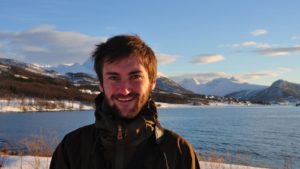Nationality: Danish
Partner Institution: Aarhus University and the Natural History Museum Aarhus
Start and end of PhD project: 1. May 2017 – 30 April 2020
e-mail: oli@bios.au.dk and oskar@nathist.dk
Supervisors: Jens-Christian Svenning, Toke Thomas Høye and Kent Olsen
PhD title: Consequences of trophic rewilding for arthropods
Link to Institute of Bioscience at Aarhus University
Link to research team at Aarhus University
Link to the Natural History Museum Aarhus
Description of research project:
Trophic rewilding, an increasingly popular management strategy for biodiveristy conservation, has been proposed as a strategy to re-establish more self-regulating ecosystems via restoring ecologically important megafauna species extirpated by past human activities as well as overcoming other negative human alterations of the ecosystems. The concept is to reintroduce key species or functional types, typically top predators or dominant large mammalian herbivores. However, the method suffers from limited empirical assessments, causing major limitations in our ability to predict its successfulness. The question how the ecosystem responds to such changes and if the introduction of stochastic processes are related to the biodiversity, can best be answered by measuring the most diverse entities of the ecosystems, such as arthropods. Traditional arthropod monitoring methods, however, are both time-consuming, expensive and destructive. Utilizing camera and image classification technologies will enhance the arthropod monitoring substantially in several ways. First, the time consuming aspects of sorting and identification of samples would be minimized with automatic species identification. Second, camera traps will require less time in the field, thus enabling a larger amount of sites to be monitored at the same time. Third, camera traps will be capable of monitoring species in a non-destructive manner.
The aim of the PhD-project consists of two main parts: 1) to develop a method of nondestructive Arthropod sampling, based on camera and image classification technology. The method will be applied and tested together with traditional sampling methods as a proof of concept in a self-managing regime project, Rewilding Mols, at the Mols Laboratory in Mols Bjerge National Park 2) to investigate the effects of trophic rewilding with cattle and horses on arthropods in multiple trophic levels, and further the relation between landscape complexity and arthropod diversity.


